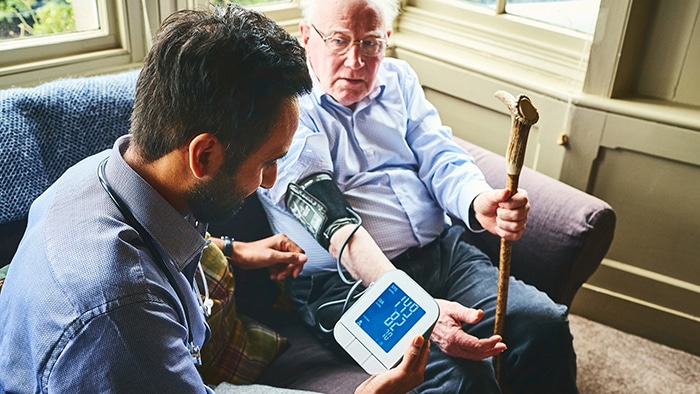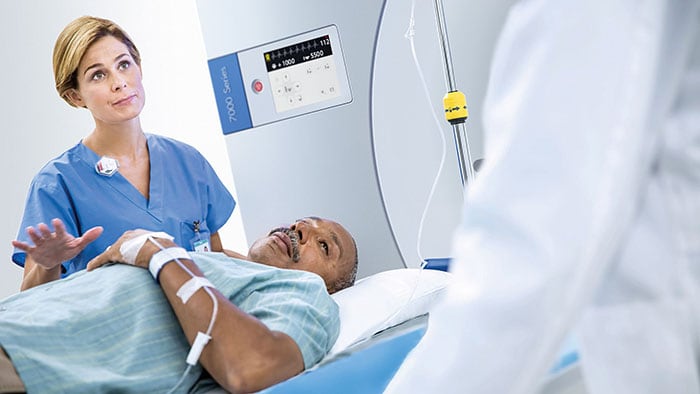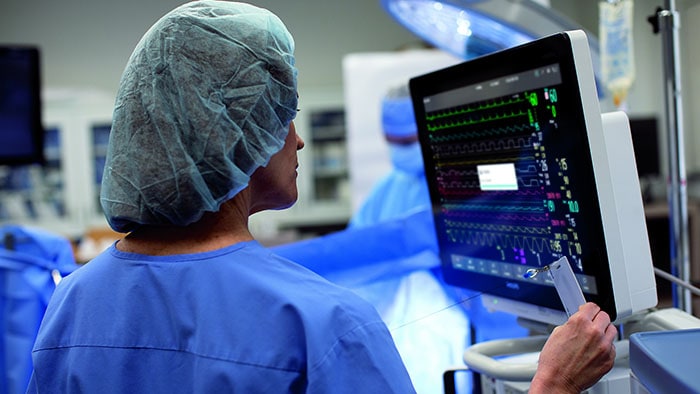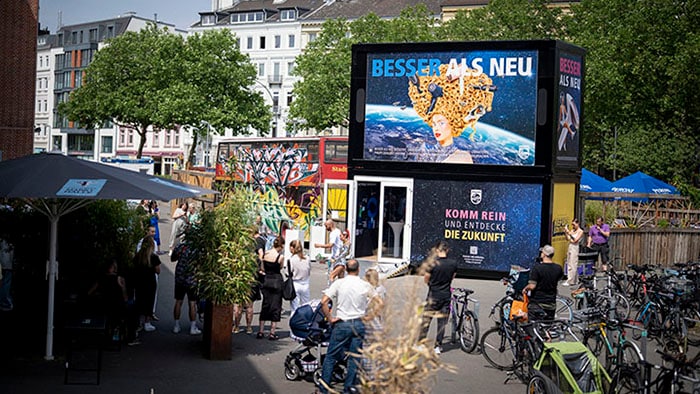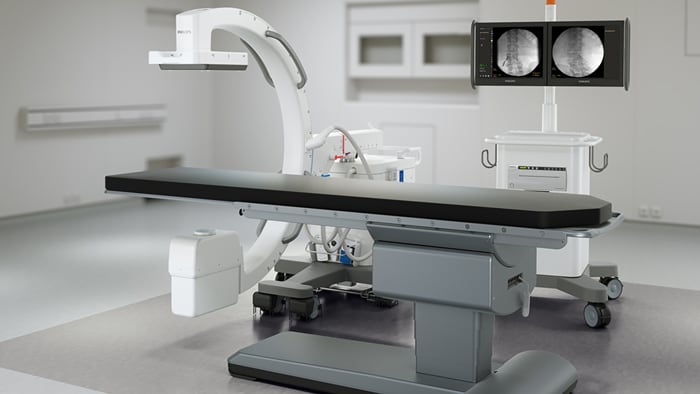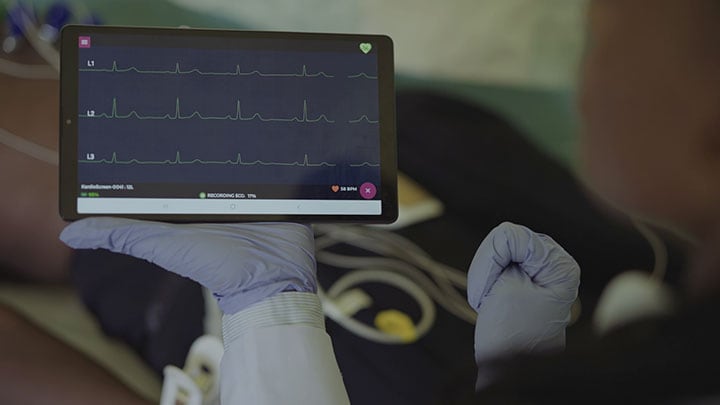Jun 12, 2017
Cost is a significant barrier to healthcare in South Africa reveals the first Future Health Index released by Philips
Healthcare professionals (HCPs) and patients indicate improving access to healthcare services as a core priority for local Government
Johannesburg, South Africa – Royal Philips (NYSE: PHG, AEX: PHI) today released the South Africa results of the first edition of its Future Health Index (FHI), an extensive international study which explores how countries around the world are positioned to meet long-term global health challenges through integration of health systems and adoption of connected care technologies. South Africa received an overall score of fifty six point seven (56.7) out of a possible hundred (100), highlighting the need for a concerted effort to increase access to healthcare; the cost of healthcare came out as one of the top barriers to coordinating healthcare further in South Africa. The findings from the study provide valuable insight into the perceived state of readiness of markets around the world to benefit from integration across healthcare systems, and identify significant areas where healthcare systems must transform to deliver value-based care in the future. Examining the perceptions, behaviors and attitudes of both patients and HCPs , the FHI focuses on three important factors to help countries become better poised to meet current and future healthcare challenges: a) access to healthcare; b) integration of the current health system; and c) adoption of connected health technology and systems. South Africa ranked eighth (8) out of thirteen (13) countries; the results of the survey highlight the need for a more concerted effort to increase access to healthcare, and conversely indicate a stable performance on healthcare integration, and above average performance on connected care technology adoption. Key South African findings from the FHI study showed: South Africa’s FHI score of fifty six point seven (56.7) - is based on low access to healthcare resources but a high adoption of connected care technology. Both HCPs and patients note improving access to healthcare services as something the government should prioritize to improve public health. South Africa’s healthcare system is one of the lowest-rated by its patients among the thirteen (13) countries surveyed. Overall, cost is a significant barrier to healthcare in South Africa – much more so than any other market surveyed. Cardiology issues are prevalent among patients in South Africa; about one-third (thirty one percent - 31%) of patients surveyed in South Africa have had experience with a cardiology-related issue. Although South Africa’s health system is not considered to be very integrated at present, patients and HCPs alike see a clear value in future integration. Despite financial and cost related issues with healthcare in South Africa, openness to connected care technologies raises South Africa’s connected care technology adoption sub-index score above the average, with South African HCPs and patients acknowledging the benefits of connected care across the health continuum (The health continuum covers the full range of consumer and patient needs from healthy living and prevention to diagnosis, treatment and home care). Patients and HCPs agree that individuals are fully responsible for managing their health. “The Future Health Index has uncovered a number of significant areas where our healthcare system must transform if we are going to succeed in delivering long-term value-based care,” said Ntutule Tshenye CEO, Philips South & Southern Africa. “It is encouraging to see South Africa starting from a reasonably strong position in its readiness to adopt connected digital technologies that will ultimately drive transformation. The outcome of the South African report provides valuable insight for patients, HCPs and policymakers on where attention needs to be focused to increase levels of access, integration and adoption of health technology to improve healthcare outcomes and patient experience in the long term.” The FHI study, (which will be run annually), was conducted in partnership with an independent global market research firm in 13 countries. More than 2,600 HCPs and 25,000 patients were questioned in Australia, Brazil, China, France, Germany, Japan, The Netherlands, Singapore, South Africa, Sweden, UAE, U.K. and U.S.

To download the South African FHI report, please visit www.philips.co.za To read the Future Health Index report in its entirety, and to access local market data in-depth, please visit: www.futurehealthindex.com.
About the Future Health Index Philips undertook original research to understand the perception towards connected care and the role it plays in the future of healthcare. The study, which will be run annually, included both quantitative surveys and qualitative in-depth interviews. These were conducted from February-April, 2016 in 13 countries. In partnership with an independent global market research firm, a survey was fielded from February 24, 2016 to April 8, 2016 in Australia, Brazil, China, France, Germany, Japan, The Netherlands, Singapore, South Africa, Sweden, UAE, U.K. and U.S. in their native language. A combination of online, face-to-face (computer-assisted) and phone (computer-assisted) interviewing was used to reach a total sample of: In South Africa, a combination of online, face-to-face (computer-assisted) and phone (computer-assisted) interviewing was used to reach a total sample of: Throughout this document, cardiology specific patients are cited. Cardiology patients are those from the total patient sample who currently have or have had in the past one or more of these conditions: Artery Disease, Arrhythmia, Heart murmurs, Heart valve issues, Stroke, High cholesterol. Secondary research was also conducted, gathering information from third party data and case studies to further validate the primary research results. To provide context around the quantitative data, the survey was supplemented with 30-45 minute in-depth interviews with about 20 healthcare providers in South Africa from March 7-April 11, 2016. The FHI (FHI) is calculated by combining the quantitative survey responses from patients and HCPs equally on questions about access to the healthcare system, their country’s current state of health integration and adoption of connected care technology and. The Index ranges from 0 to 100 points, and is the average of three sub-indices: access (across the health continuum); integration (of health system); and adoption (of connected care technology). Each of the three sub-indices range from 0 to 100 points, and each are weighted equally in the final FHI score. The three sub-indices scores are based on a series of question groupings (or components) that draw from a distinct theme in the questionnaire.
About Royal Philips
Royal Philips (NYSE: PHG, AEX: PHIA) is a leading health technology company focused on improving people's health and enabling better outcomes across the health continuum from healthy living and prevention, to diagnosis, treatment and home care. Philips leverages advanced technology and deep clinical and consumer insights to deliver integrated solutions. Headquartered in the Netherlands, the company is a leader in diagnostic imaging, image-guided therapy, patient monitoring and health informatics, as well as in consumer health and home care. Philips' health technology portfolio generated 2016 sales of EUR 17.4 billion and employs approximately 70,000 employees with sales and services in more than 100 countries. News about Philips can be found at www.philips.com/newscenter.
Topics
Contacts

Radhika Choksey Head of Brand, Communications and Digital Philips Africa Tel: +31 62525 9000
Email: radhika.choksey@philips.com
